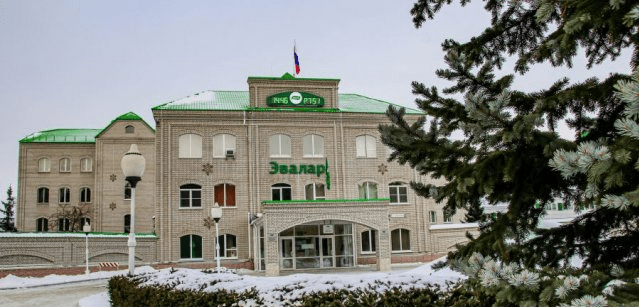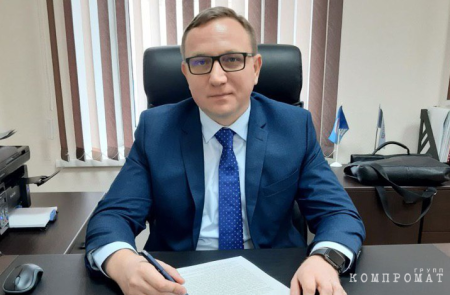Is the United Russia party in the parliament working to support a major dietary supplements manufacturer?
In the Russian society, there is a debate about a proposed law to block websites selling unregistered dietary supplements without going to court. This law is supported by State Duma Vice Speaker Sergei Neverov, deputy Alexander Petrov, and Alexander Prokopiev, who is linked to the biggest domestic dietary supplements manufacturer, Evalar. The company has been involved in actions against its competitor, the American iHerb marketplace, with the help of people connected to Evalar. The owner of Evalar is Larisa Prokopyeva, who is among the richest women in Russia. Evalar is also a major supporter of the United Russia party in the Altai Territory, explaining the involvement of high-ranking party members in lobbying for the law. However, Evalar has been involved in various scandals and legal disputes, including attempts to pass off its products as medicines.
Deputies are getting involved in the issue of dietary supplements.
There have been increased discussions in Russia this year about a bill to block websites selling unregistered dietary supplements. Last June, the bill was submitted for consideration, with the vice-speaker of the lower house, Sergei Neverov, and United Russia Health Committee member Alexander Petrov as its authors.
The explanatory note for the bill states that Rospotrebnadzor has official information indicating a growing number of complaints from citizens about false information on dietary supplements for food available on the internet. This includes complaints about online stores offering dietary supplements containing prescription drugs.
Lawmakers point out that it's nearly impossible to identify the owners of websites and individuals selling unregistered supplements online, making it difficult to use the judicial process. Therefore, a radical solution has been proposed – to block such resources without a court decision.
Some members of the parliament have mixed opinions about the legislative initiative. Alexander Khinshtein, the head of the Duma Committee on Information Policy, Information Technology, and Communications, described it as 'excessive' and not in line with existing legislation. The committee's conclusion refers to blocking access to websites as 'an extreme measure used in dealing with critical, most serious violations of Russian legislation.'
Opponents of legal changes did not deny the facts of unjust advertising, when dietary supplements are portrayed as a miraculous cure for all illnesses. In contrast, supporters of the stricter rules pointed to a case heard by the Supreme Court in early 2021, where it was proven that a website was widely spreading banned information offering unregistered supplements containing potent, psychotropic, narcotic, and simply harmful toxic substances for sale.
Is “Evalar” getting rid of its competitors?
Since January, the dispute has reignited with renewed strength. According to Kommersant, industry participants, through the Association of Internet Trade Companies (AKIT) and the Russian Association of Electronic Communications (RAEC), appealed to Prime Minister Mikhail Mishustin, asking not to implement legal changes without consulting industry representatives. The main argument is that the amendments equate selling prohibited goods online to providing information about suicide methods and drug production. This could lead to numerous online trading companies being shut down, with a turnover of 3.6 trillion rubles in 2021 alone.
The authors of the proposal responded last week. Sergei Neverov stated that the new version of the document specifies cases when products are recognized as prohibited for sale. According to him, online stores violating the specified norms will not be completely blocked, as a page-by-page mechanism is proposed. However, the deputy emphasized that the bill does not suit large venues. “To freely sell what is prohibited in other countries – this is well implemented in our market,” Neverov added.
Seeing this increased activity, one cannot help but ask: did the deputies' motivation to clean up the internet from unscrupulous manufacturers and distributors of uncertified products really stem solely from concern for the nation's health? As expected, an alternative viewpoint is also expressed.
“The bill resulted from competition between Russian dietary supplement companies and foreign sites, which, due to Russian and supranational legislation, fare better in terms of taxation…This conflict of interest is where I see the source of the emergence of a precedent for the extrajudicial blocking of goods that are not restricted in circulation, which is dangerous for the online commerce market and our society as a whole,” said Artem Sokolov, president of AKIT, in an interview with Lenta.Ru.
An identified legal entity with vested interest is the largest Russian dietary supplement manufacturer, Evalar. Referring to the bill as “part of the sensational battle between Evalar and the American iHerb marketplace,” Kommersant reported in January that the iHerb online store was included in Roskomnadzor’s list of banned sites based on the decision of the Central District Court of Barnaul on August 24, 2021. The prosecutor’s office filed a claim for blocking, responding to an appeal from representatives of the Altai regional public organization of consumers “People’s Control”.
Business mom of politician Prokopiev
At iHerb, the pressure is connected to Evalar. The company's headquarters is in Barnaul, where a court decision blocked the website. According to the portal “Taiga. Info,” Nikolai Yakushev, a leader of the People’s Control prosecutor’s office and a member of the Altai Regional Legislative Assembly, is the director of the Altai Biopharmaceutical Cluster. This cluster includes CJSC “Evalar.”
According to Forbes, Evalar is connected to the executive director of the Union of Producers of Dietary Supplements for Food, Alexander Zhestkov. Zhestkov, who initiated proceedings in the Ulyanovsk court, worked as an assistant to State Duma deputy Alexander Prokopyev, the son of Evalar's owner Larisa Prokopyeva. Reports suggest the influential family spent 50 million rubles for the court decision in Barnaul.
In this context, the deputy's hidden lobbying activity becomes logical. He uses his connections with United Russia colleagues to promote family commercial interests and uses social activists such as Zhestkov and “People’s Control” headed by Yakushev. Prokopiev himself cannot initiate the necessary bill, as the deputies Neverov and Petrov are doing it for him.
Evalar CJSC's financial performance is impressive: in 2020, its revenue was 10.7 billion rubles, and its profit was 4.5 billion. Last year, the owner Larisa Prokopyeva was the 24th richest woman in Russia. “Evalar” has been called one of the main sponsors of “United Russia” in the Altai Territory. Thus, it is likely that the party in power will support the enterprise if needed.
The company is regularly among the top Russian advertisers. The “Alexander Prokopiev Foundation” is the main customer of positive press about Evalar, but the deputy recently withdrew from being among its founders. Prokopiev has distanced himself from commerce. His share in Farmavest LLC has been transferred to trust management. Prokopiev's mother and sister are involved in managing Evalar.
Advertising fraud and a bet abroad




